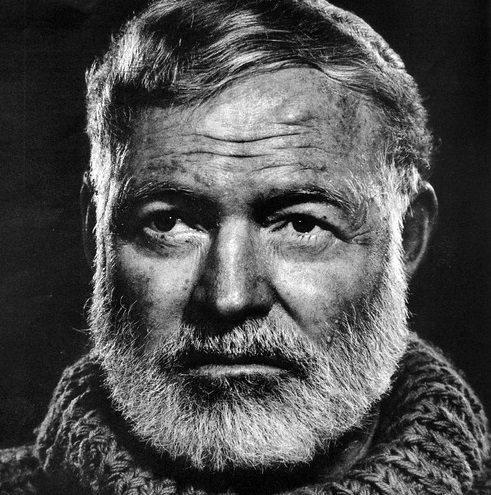
by Richard Subber | Jan 5, 2022 | Joys of reading, Language
I won’t show you mine…
You can learn something from Kurt Vonnegut Jr. (1922-2007)
Now, Vonnegut isn’t my favorite writer. Yes, of course, I’ve read Slaughterhouse-Five. OK, that puts me in the “I’ve read Slaughterhouse-Five” category. To paraphrase Woody Allen, the novel has to do with World War II and stuff…
OK, sorry about that downer intro. I don’t incline to sound like a Vonnegut fan when I say that the following anecdote is a glorious insight that moves me.
In 2006, shortly before his death, Vonnegut gave some advice to five New York City high school guys who had written to him:
“. . . Here’s an assignment for tonight,
and I hope Ms. Lockwood will flunk you if you don’t do it:
Write a six line poem, about anything, but rhymed . . .
Make it as good as you possibly can.
But don’t tell anybody what you’re doing.
Don’t show it or recite it to anybody,
not even your girlfriend or parents or whatever, or Ms. Lockwood. OK?
Tear it up into teeny-weeny pieces, and discard them . . .
You will find that you have already been
gloriously rewarded for your poem.
You have experienced becoming,
learned a lot more about what’s inside you,
and you have made your soul grow.”
Oh yes, I’m writing my poem now.
Don’t show me yours.
* * * * * *
Copyright © Richard Carl Subber 2022 All rights reserved.
“…watchers in the crystal sphere…”
”Night watch,” a poem
“…friends who pass the time…”
–
Writing Rainbows: Poems for Grown-Ups with 59 free verse and haiku poems,
and the rest of my poetry books are for sale on Amazon (paperback and Kindle)
and free in Kindle Unlimited, search Amazon for “Richard Carl Subber”
* * * * * *

by Richard Subber | Oct 13, 2021 | Joys of reading, Language, My poetry, Poetry, Reflections
“…the hush of autumn is danse minuet…”
Walk this way
The familiar path invites me, always in a new way.
I forget so much each time I turn for home.
Today this wood is a full mystery again,
full canopy shelters full magic for the wanderer,
warms an alchemy in me, my steps and pace precess,
becoming dance, my breath becoming breeze,
my sight becoming rays brightening all
that stretches for sun in the umbra moving with me, pausing with me.
The routine of life is a guise for the wonder of growth
and the resurging energy to sprout anew in mouldy places.
The small deaths are symbiotic in so many ways,
the round of living and dying is danse macabre for insect, bird and beast.
The gush of spring is a greening tarantella,
all speed, all blossom, all scented marvel—
the hush of autumn is danse minuet,
all languor, all afterlife of color, all bending toward earth.
I know my place, my purpose, my delight.
I am another life in this calm living forest.
I do not take root, I am not a caretaker, I do not give or take life,
I do not die and rise again in the turn of seasons.
I am a walker, a watcher, a singer of forest songs.
August 11, 2015
That day the buzz in the forest invited me to sing along.
It didn’t seem surprising that I knew so many of the words.
In my mind, at least, I was dancing to the cascade of tunes, turning from left to right
and back again to shoot those brightening rays…
thus, I learned this poem of nature.
My poem “Walk this way” was published January 23, 2018, in my second collection of 47 poems, Seeing far: Selected poems. You can buy it on Amazon (paperback and Kindle), or get it free in Kindle Unlimited, search for “Richard Carl Subber”
“Walk this way” was published in the Spring/Summer 2017 issue of the Aurorean.
“Walk this way” was published (October 2017) in The Four Elements: Effects and Influences, an anthology by PoCo Publications (Poets Collective), available in paperback on Amazon, click here
* * * * * *
My poetry. Copyright © Richard Carl Subber 2021 All rights reserved.
Book review: Lord of the Flies
Never more relevant…
by William Golding
My first name was rain: A dreamery of poems with 53 free verse and haiku poems,
and the rest of my poetry books are for sale on Amazon (paperback and Kindle)
and free in Kindle Unlimited, search Amazon for “Richard Carl Subber”
* * * * * *

by Richard Subber | May 21, 2021 | Joys of reading, Language, My poetry, Poetry
doing what comes naturally…
In search of…
I wish I had a better way to say
the things I really want to hear today.
Alas, I don’t, and there’s the rub, you see?
The words I want won’t blossom here for me.
April 6, 2015
This is a sample of iambic pentameter, pure and simple.
For me, it often seems natural to write poetry in iambic meter, that is, words that seem to flow in a rhythm captured by an unstressed syllable followed by a stressed syllable, repeat, repeat.
There’s no mystery about an iamb: think of a word like “enjoy,” the “en” is not stressed (not emphasized) and the “joy” is stressed (emphasized).
For me, this rhythm, when extended, creates a lilting, almost singsong style that is pleasing to the ear and to the eye.
Unlike some poets, I don’t determinedly write this way, line after line.
I’m sensitive to the intended and the spontaneous visual and aural rhythms as I compose my poetry, and I let the rhythm heighten the impact of what I’m writing.
The quatrain above is deliberately written in iambic pentameter.
It’s illustrative, but it’s not my most beautiful piece of work.
Usually I don’t let style cramp my choice of the right words.
* * * * * *
My poetry. Copyright © Richard Carl Subber 2021 All rights reserved.
Book review: “Bartleby, the Scrivener”
Loneliness beyond understanding…
by Herman Melville
–
My first name was rain: A dreamery of poems with 53 free verse and haiku poems,
and the rest of my poetry books are for sale on Amazon (paperback and Kindle)
and free in Kindle Unlimited, search Amazon for “Richard Carl Subber”
Your comments are welcome—tell me what you’re thinking.
* * * * * *

by Richard Subber | Mar 30, 2021 | Book reviews, Books, Joys of reading, Language, Poetry, Reviews of other poets
even baseball in the dark…
Home Team: Poems About Baseball
by Edwin Romond
West Hartford, CT: Grayson Books, 2018
You really don’t have to be a baseball fan to feel the joy that just won’t quit in Romond’s offering of romantic poems about baseball.
I mean romantic in the sense of the 19th century Romantic Era, when practitioners in most of the arts were focused on the many dimensions of intense emotion and esthetic experience.
You will discover that Romond’s poetry has so much of longing, and recognition, and acceptance, and the joys we can find in everyday life, and Home Team has many versions of all that.
My favorite is “Baseball in the Dark,” a ripe recollection of a young boy’s dream that he could again hear radio broadcaster Mel Allen’s “summer voice going, going, on and on…telling me baseball in the dark.” That would be a downright good thing to do, and Romond knows a lot of those things.
You can check out Romond’s poetry books on his website, click here.
* * * * * *
Book review. Copyright © Richard Carl Subber 2021 All rights reserved.
The poetic art of Grace Butcher
Poetry for reading out loud…
it’s that good
Book review: Child, House, World
My first name was rain: A dreamery of poems with 53 free verse and haiku poems,
and the rest of my poetry books are for sale on Amazon (paperback and Kindle)
and free in Kindle Unlimited, search Amazon for “Richard Carl Subber”
* * * * * *

by Richard Subber | Jun 25, 2020 | Book reviews, Books, Joys of reading, Language
…relentlessly realistic dialogue…
(book review)
A Farewell to Arms
Ernest Miller Hemingway (1899-1961)
New York: The Modern Library, 1932.
It’s been a while since I read Hemingway.
A Farewell to Arms is a slow starter, and again I learned to pace myself without too much trouble. The action is restrained but steady, and again I realized gradually that a key element is the relentlessly realistic dialogue.
The American protagonist, Frederick Henry, is involved in every scene. The life of the book is his life. His recurring, desultory involvement in his own life and his role in the Italian Army in World War I is the backdrop of his elaborately recounted relationship with the nurse, Catherine Barkley.
A Farewell to Arms doesn’t really seem to be a war novel. On the other hand, except for brief interludes, the characters really don’t seem to be at peace. For Frederick Henry, it’s an ironic farewell.
* * * * * *
Book review. Copyright © Richard Carl Subber 2020 All rights reserved.
Book review: Seven Gothic Tales
by Isak Dinesen
lush and memorable stories…
–
Above all: Poems of dawn and more with 73 free verse poems,
and the rest of my poetry books are for sale on Amazon (paperback and Kindle)
and free in Kindle Unlimited, search Amazon for “Richard Carl Subber”
* * * * * *

by Richard Subber | Jun 13, 2019 | Book reviews, Books, Joys of reading
a discursive ramble…
Book review:
Shooting an Elephant and Other Essays
by George Orwell (1903-1950)
Jeremy Paxman, intro.
New York: Penguin Books, 2009
375 pages
Of course, Shooting an Elephant has Orwell’s must read piece: “Politics and the English Language” (1946).
“Why I Write” is a peacefully discursive ramble in the mind of a consummate writer. Orwell candidly says “…I think there are four great motives for writing, at any rate for writing prose.”
These are:
- Sheer egoism—“It is sheer humbug to pretend that this is not a motive, and a strong one.”
- Aesthetic enthusiasm—“Perception of beauty in the external world, or, on the other hand, in words and their right arrangement.”
- Historical impulse—“Desire to see things as they are, to find out true facts and store them up for the use of posterity.”
- Political purpose—“using the word ‘political’ in the widest possible sense. Desire to push the world in a certain direction, to alter other people’s idea of the kind of society that they should strive after.”
“Bookshop Memories” is half a martini’s worth of good reading for any book lover who has spent a little time (or a lot of time) in an old used book store that has that old book smell, and shelves stuffed with books from floor to ceiling so you have to kneel down to inspect the ones on the bottom shelf, and an old guy with a careless beard at the ancient cash register, and a cat that can’t be bothered to pay any attention to the loitering bibliophiles…
Orwell is one of the writers that Coleridge had in mind when he mentioned that good prose is “words in their best order.”
Paxman’s introduction is a decent substitute for a reflective conversation with Orwell about writing.
Shooting an Elephant has almost two dozen examples of what Orwell could do with pen and paper. He died too young.
* * * * * *
Book review. Copyright © Richard Carl Subber 2019 All rights reserved.
Mary Jane Oliver, R. I. P.
She wrote so many of the right words…
–
Seeing far: Selected poems with 47 free verse and haiku poems,
and the rest of my poetry books are for sale on Amazon (paperback and Kindle)
and free in Kindle Unlimited, search Amazon for “Richard Carl Subber”
* * * * * *





